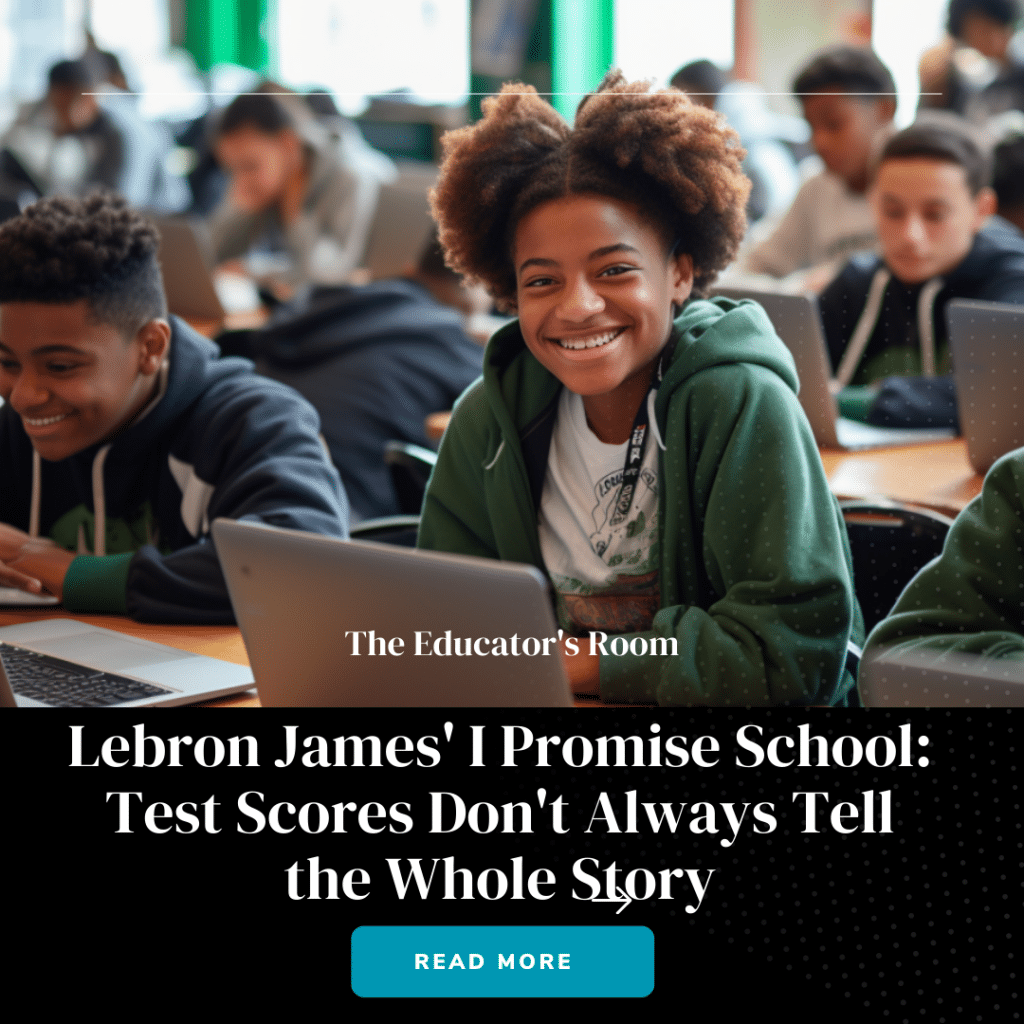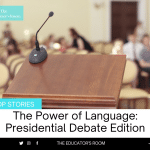With the recent headlines about the failing state test scores of students in Lebron James, I Promise school, many point their proverbial “blame and shame” fingers. There is so much to unpack in the negative light painted in the focus on the fact these upcoming eighth graders “hadn’t passed the math portion of their state proficiency exam in three years.” Bias is just the tip of this issue. But the reality is that test scores across the country, including in my home state of California, are not faring much better.
“Most California students did not meet standards in math and English this year (2022)…in another example of test scores continuing to fall after the pandemic — including notable declines for Black and Latino children.”
CBS. news
The Impact of the Pandemic
Pre-pandemic, the I Promise school was thriving. “The 90 percent of I Promise students who met their goals exceeded the 70 percent of students districtwide, and scored in the 99th growth percentile of the evaluation association’s school norms, which the district said showed that students’ test scores increased at a higher rate than 99 out of 100 schools nationally.” (NY Times)
To deny the impact of the COVID Pandemic on the test scores of these students, and students across the nation, singling out one school that just so happens to have been established by an icon like Lebron James is beyond discriminatory. While we could focus on many issues this could suggest, the larger systemic issues of education relying on assessments to determine student achievement is one even colleges and universities have begun to move away from.
The Move Away from a Reliance on Tests
If higher learning institutes can look beyond merely assessing 20% of a student’s potential, why are we in K-12 not making the necessary shifts as well? Further, why single out a school dedicated to “educat[ing] the whole person? This past week, Columbia University will be the first in the Ivy League college to go test optional indefinitely. According to USA Today, Columbia University officials said they have “designed our application to afford the greatest possible opportunity and flexibility for students to represent themselves fully and showcase their academic talents, interests, and goals.”
If we take a step back and take yet another look at what and how we are assessing, as well as what and how we are teaching, we have the opportunity to change a focus that solely relies on test scores to demonstrate the genius a child has inside them.
Cultivating the Whole Child
I recently attended an Education Summit where Gholdy Muhammad talked about “Cultivating Genius and Joy in Education through Culturally and Historically Responsive Pedagogies.” She introduced us to the methods of teaching and cultivating the whole child: their skills, intellect, criticality, joy, and identity.
Muhammad spoke about how only 17% of Black students are proficient in math. She correlated this to many teachers only teaching the “skills” they believe students need to be successful on assessments, equivalent to only 20% of what the child needs. Then she explained that if we teach only 20% of what a child needs to succeed, we should only expect 20% in those results.
More than Just the Basics
Gholdy Muhammad has provided the blueprint. In her words, focusing on learning the “basics” does not help a child succeed. If the curriculum is only centered around doing well on assessments, we are not only failing to cultivate the whole child, but we are telling that child that skills alone are enough to succeed.
Are the assessments able to show the true intellect of a child? Are they places to show criticality in a way to truly express the ability to “read, write, think and speak” effectively? Do the assessments tap into a student’s identity, as Muhammad states, reflecting “who they are and whose they are”? And perhaps more importantly, do the students experience joy? When the entirety of their identities is reduced to a state test score, how is that affirming students’ identities, let alone their joy? In the words of Maya Angelou, “We need joy as we need air.” We must learn how to cultivate the totality of what a child needs to succeed in school and life, before we can truly begin to access them.
Change the Narratives
Whether it be peeling back the layers of why the media chose to focus on the test scores of Lebron James’ school or taking a hard look at education through the eyes of Gholdy Muhammad’s teaching, we see many opportunities to change many narratives. In Muhammad’s words, “do we continue to blame the child or the designer?” Is it about the school, the curriculum, or the system? To single out a school is not only diminishing the potential genius in all children but showing children that assessments are all that we value when it comes to truly appreciating what they bring to the table.
The problems in education continue to make headlines. Low test scores continue to make headlines. Lebron James continues to make headlines. But what’s not making headlines are actionable solutions that might help our students be successful in this post-pandemic era. And further, no one seems to focus on the fact that Lebron James is using his wealth, influence, and platform to do his part in helping to close the achievement gaps for students of color in Akron. What would happen if we actually “assessed” the educational contributions of the people behind these headlines? How would they measure up?






